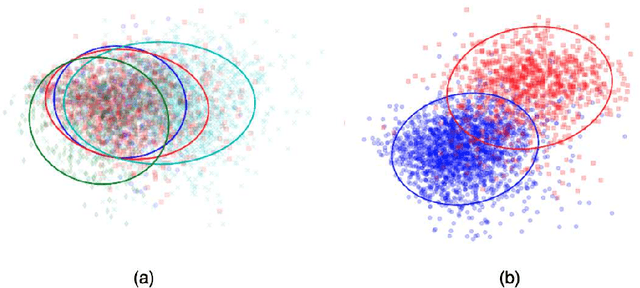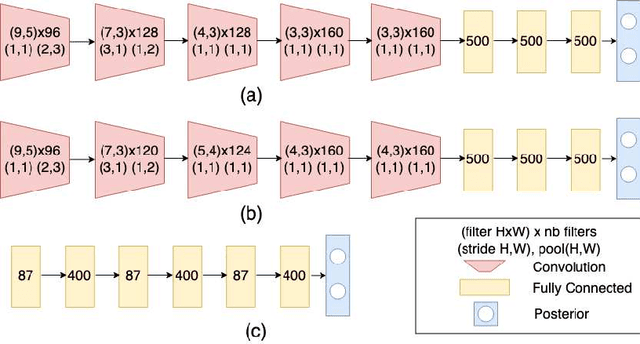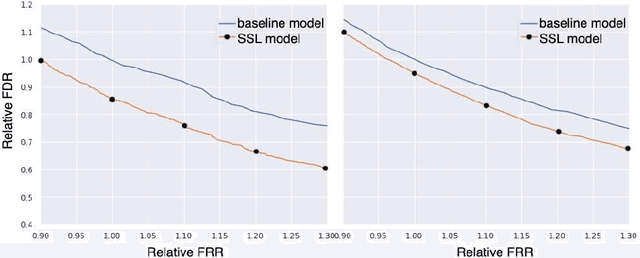Wakeword Detection under Distribution Shifts
Paper and Code
Jul 13, 2022



We propose a novel approach for semi-supervised learning (SSL) designed to overcome distribution shifts between training and real-world data arising in the keyword spotting (KWS) task. Shifts from training data distribution are a key challenge for real-world KWS tasks: when a new model is deployed on device, the gating of the accepted data undergoes a shift in distribution, making the problem of timely updates via subsequent deployments hard. Despite the shift, we assume that the marginal distributions on labels do not change. We utilize a modified teacher/student training framework, where labeled training data is augmented with unlabeled data. Note that the teacher does not have access to the new distribution as well. To train effectively with a mix of human and teacher labeled data, we develop a teacher labeling strategy based on confidence heuristics to reduce entropy on the label distribution from the teacher model; the data is then sampled to match the marginal distribution on the labels. Large scale experimental results show that a convolutional neural network (CNN) trained on far-field audio, and evaluated on far-field audio drawn from a different distribution, obtains a 14.3% relative improvement in false discovery rate (FDR) at equal false reject rate (FRR), while yielding a 5% improvement in FDR under no distribution shift. Under a more severe distribution shift from far-field to near-field audio with a smaller fully connected network (FCN) our approach achieves a 52% relative improvement in FDR at equal FRR, while yielding a 20% relative improvement in FDR on the original distribution.
 Add to Chrome
Add to Chrome Add to Firefox
Add to Firefox Add to Edge
Add to Edge